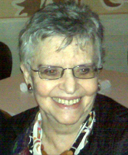Cities with human rights! |
We live in a world without moral boarders. Many of us who are engaged in interdisciplinary analysis combined with social activism have abandoned (or never fully held) the holistic approach in assessing symptoms and causes, urgencies and/or long term solutions theoretically or practically to this challenging development. It is not often that the interconnectedness and interrelatedness of human rights concerns becomes part of a genuine systemic analysis that which stands to avail us with the necessary compass for real economic and social transformation. Yet the increasing complexity of the world demands this holistic response to its many challenges. .
Many around the globe whose rights are not actively protected become vulnerable to the three ‘Ps’: Patriarchy, Power and Politics. What is most disheartening is the lack of an ongoing dialogue throughout all sectors of society about human rights. We, who are facilitating learning processes at the community-level speak of developing human rights cities through learning human rights as a way of life. In 20 years of working around the world, I have witnessed first-hand how the vision and mission of human rights answers the dreams, hopes and expectation of humanity; moving charity to dignity.
This work describes succinctly the purpose, the processes, and the phenomena of social structures as understood by the framers of the Universal Declaration of Human Rights. They give credibility to people’s own hopes, their values, their dignity and made the promise for human rights to serve humanity. Indeed, the holistic human rights framework guides communities into a journey of hope that informs societal development and positive change towards economic and social justice and the closing of the widening gap of dignity around the world.
More than two billion people live in cities today. Cities are a microcosm of a state with all its promises and concerns. Four billion people will live in cities within 15 to 20 years. With the multitudes of people and issues interacting and interrelating there are no inherent knowledge, support systems, or guidance of how to live with one another in dignity and how practically to abide by moral values in today’s fast-changing and harsh world. The multiple and pluralist realities of people in the information age and the growing number of people of which 50% are under 25 years old need urgently to be attended to, morally and politically. Scientist and researchers devoting their lives to learn, analyze and understand societies must learn human rights and bring the message to a world that is yearning for change.
To move from the vision to a practical mission that enables people to belong in community in dignity, in trust and respect with others, a new phenomenon has begun to take form, in some cities in Latin America, Africa and recently in the US. Community activists working alongside local authorities are developing programs that will have their citizens learn, know and own human rights and take actions to change their lives guided by the human rights framework. Certain cities have chosen to call themselves ‘Human Rights Cities’ when they aspire to become centers for knowledge. These cities encourage their citizens to work together to build communities based on economic and social justice, equality and non-discrimination; realizing that we have no other option but human rights as a way of life.








 Shula Koenig, recipient of the 2003 UN Human Rights Award, founded in 1988 the People's Movement for Human Rights Learning (PDHRE), an organisation that has facilitated directly and indirectly ‘learning and dialogue about human rights as a way of life for social-economic transformation with a gender perspective’ in more than 60 countries.
Shula Koenig, recipient of the 2003 UN Human Rights Award, founded in 1988 the People's Movement for Human Rights Learning (PDHRE), an organisation that has facilitated directly and indirectly ‘learning and dialogue about human rights as a way of life for social-economic transformation with a gender perspective’ in more than 60 countries.
Post new comment